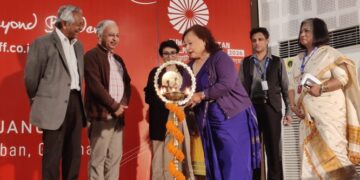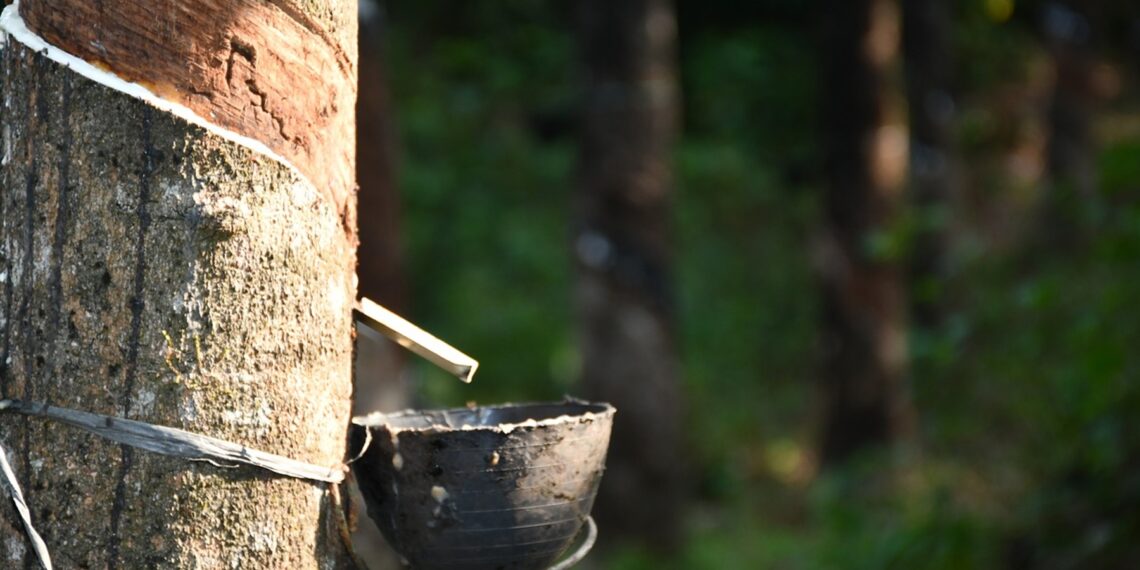Guwahati: India’s leading tyre manufacturers, in collaboration with the Rubber Board, have launched a large-scale initiative to enhance skills and infrastructure for rubber farmers across the Northeast and West Bengal.
The programme, named ‘iSPEED’, is part of the broader Rs. 1,100-crore Indian Natural Rubber Operations for Assisted Development (INROAD) project, aimed at improving the quality and yield of natural rubber in the region.
Backed by Apollo Tyres, CEAT, JK Tyre, and MRF, and coordinated through the Automotive Tyre Manufacturers’ Association (ATMA), the iSPEED initiative will involve an additional investment of Rs. 145 crore over five years.
The focus will be on structured training, sustainable farming practices, and the development of post-harvest infrastructure.
ATMA Chairman Arun Mammen described iSPEED as a commitment to over two lakh smallholder farmers and nursery owners.
“We are investing in the knowledge base of growers by providing scientific training and shared infrastructure that ensures quality and sustainability,” he said.
Since its launch, INROAD has already facilitated the planting of rubber over 1.25 lakh hectares in the Northeast and West Bengal, with more than 1.36 lakh new farmers joining the sector over the past four years.
Despite this growth, challenges such as outdated tapping methods, poor processing facilities, and limited disease management continue to constrain productivity.
To address these gaps, iSPEED will roll out 3,000 smokehouses for high-quality sheet production, 3,000 sheet-rolling machines, model nurseries, and demonstration units.
It will also establish processing and grading centres for post-harvest management and train lead farmers to support knowledge-sharing within communities.
The programme was formally inaugurated earlier this week with the launch of several region-specific smokehouses in Tripura and Assam.
These structures, built using locally sourced materials, were introduced by ATMA officials as a model of sustainable development tailored to the region’s needs.
The Rubber Board will lead the implementation of iSPEED, supported by regional academic and technical institutions such as Tripura University.
“While INROAD laid the groundwork, iSPEED will drive momentum,” said INROAD Chairman Pravin Tripathi.
“We’re not just creating short-term interventions—we’re building enduring rural infrastructure and scalable skill models.”
Given that most beneficiaries are smallholders with plots under one acre, the programme promotes a community-based approach to infrastructure development, allowing farmers to share resources and knowledge.
ATMA Director General Rajiv Budhraja acknowledged that the INROAD project, originally scheduled for completion in five years, has been delayed due to multiple factors, including the COVID-19 pandemic and logistical hurdles. “
Sourcing planting material from Kerala and identifying beneficiaries through the Rubber Board took time,” he said.
ALSO READ: China’s export orders decline as US tariffs under Trump take economic toll
Unpredictable weather, especially excessive rainfall, has further hampered progress.
Looking ahead, Tripathi expressed optimism about the region’s long-term contribution to India’s natural rubber production.
Once the INROAD initiative is fully implemented, the Northeast is expected to contribute 40–45% of the country’s total natural rubber output—up from around 15% today—with a projected annual production of nearly three lakh tonnes.















